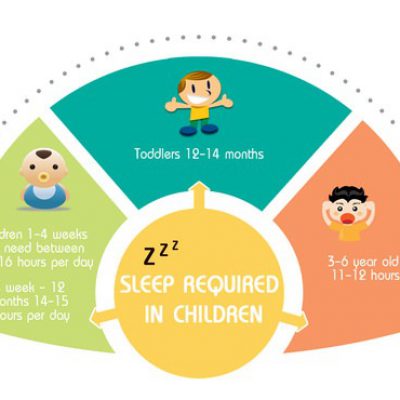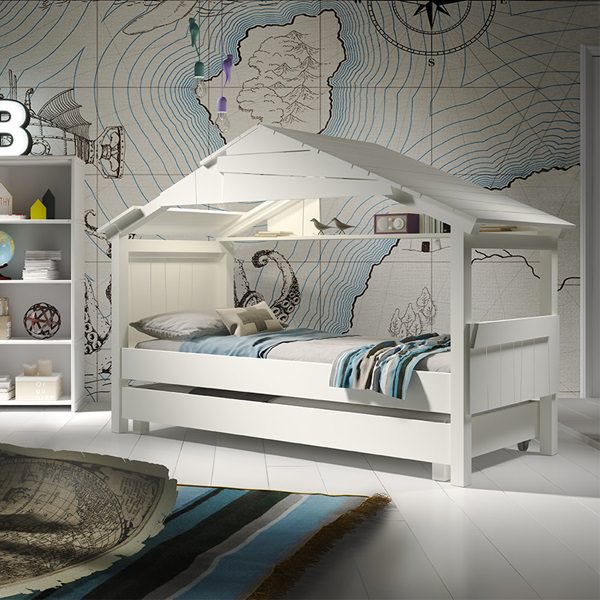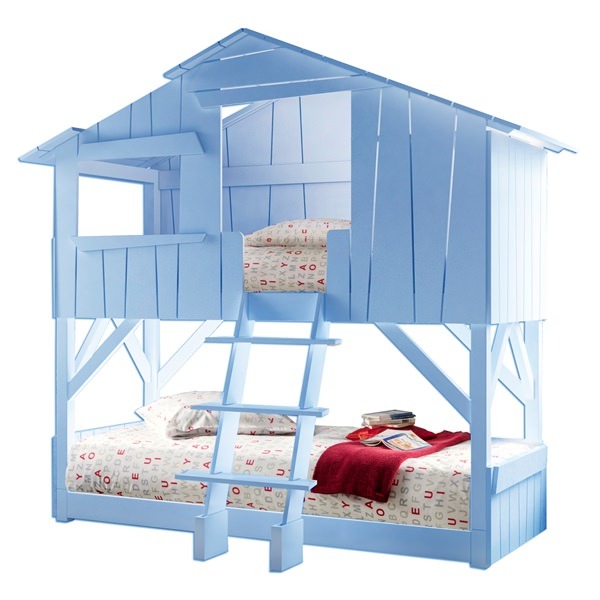Sleep Science: The Importance of Kids Bedtime Routines
Anybody who’s familiar with Cuckooland knows that we’re experts in all things quirky and unusual, and one of the many things we specialise in is unusual childrens beds, furniture and decor. One of our biggest categories for interior design is that of children and babies’ bedrooms, and specifically, their beds. Our range offers the very best on the market, and followers of our blog know that we like to reassure customers that we don’t just sell our products in the hope of pocketing their cash – we take pride in knowing our stuff before we put it on the site. We also genuinely care about our customers, and aim to help wherever possible. So with that in mind, we’ve done a bit of research into the science behind just how important sleep is to your children (you can also find some very useful tips on helping the little mites get through the night here).
How much sleep does a child need?
While there are a fair share of Victorian schoolteacher-esque types out there who will be more than happy to dictate to you that a child needs X hours of sleep between Y o’clock and half-past Z, in recent years it’s become the scientifically accepted norm that required sleeping times are different for everyone – which means that if your child is giving or taking an hour or two from the average, then you can relax. Those averages are as follows, as according to a MedicineNet.com article medically reviewed by a doctor:

1-4 weeks
12-16 hours per day. Newborns sleep for more than 50% of the day, and don’t have a concept of day and night; therefore their sleep patterns will be sporadic and unpredictable. However, this isn’t to say that they can’t get into a routine. There’ll normally be a time when they’ll have a somewhat regular “main sleep”. Parents of newborns should try and base their own sleeping patterns around this “main sleep”.1-12 months
14-15 hours. Still somewhat sporadic and unpredictable, and the child begins to develop a day/night cycle, so you can look forward to a more regular sleeping pattern! Don’t get too excited, though – waking up irregularly is still to be expected, but this will improve as time goes on.Toddlers
12-14 hours. We were quite surprised by just how much sleep a toddler needs! This is because we know lots of busy parents who’d struggle to find 12-14 hours to leave their toddlers to sleep! That said, try to incorporate naps wherever possible! Also, it’s between the ages of 1 and 3 that infants’ sleeping patterns start to become more regular.3-6 years
11-12 hours. Once again, children’s sleeping patterns should be more settled by this point. If your child still seems sleepy at this point (especially towards the younger end of the scale) then don’t worry – some kids at this age might still need an extra hour or two in the form of a lunchtime nap.7-12 years
9-12 hours. Bedtimes should be regular by now (though we by no means do we expect them to be any easier!), with younger kids in this age range requiring – on average – 10 to 12 hours of sleep. Pre-teens need a little less, but this is understandably difficult, as they’re sure to have their hands on some kind of technology that keeps them up for an extra couple of hours!
Warning signs
Since the above are just averages, and all kids are different, it can be hard to gauge whether or not your children are getting enough sleep, so we suggest just using these as a rule of thumb! However, there are some “red flags” that you’ll need to keep your eye out for, that signify when a child might not be getting quite enough sleep:Crankiness (more than usual!)
Kids are always going to be kids – there’ll always be crankiness when getting up in the morning, and tears and tantrums when they don’t get what they want! However, if you feel like your child is a bit crankier than your average kid – especially if you have extra trouble getting them out of bed in the morning – you might want to double-check their sleep hygiene (more on that below!).Night-waking
Night-waking is to be expected in the first 7-10 months of a child’s development, but if this persists as the child gets older, it may indicate a disrupted sleeping pattern.Fatigue and napping
An obvious one, but one that’s often overlooked as general tiredness, is fatigue. If your child is regularly low on energy and feels the need to take naps (after an age when naps are the norm), then there may be a problem somewhere along the line. Keep an ear out for teachers reporting on any sleepiness during school or nursery.
What you can do
If your child isn’t getting enough sleep, then it can mean bigger problems that just a few more tantrums than usual during the day! Low energy and tiredness can quite easily have an effect on performance in school, especially when one considers the effects that a lack of sleep has on memory and general mental capacity. A poor sleeping pattern now can also lead to sleep problems later in life, which can have more serious consequences such as weight gain, weight loss, or even anxiety and depression. Alright, but now that the scary stuff’s out of the way, what can you do to ensure your kids are getting the night’s sleep that they need? Here are a few tips that medical experts tend to recommend:Check your child’s level of sleep hygiene
No, this doesn’t mean a bath before bed and ensuring that their linen is clean (though we certainly wouldn’t recommend against either of those things)! Sleep hygiene are the factors surrounding a child’s bedtime that will have an effect on their sleep that night. “A common definition of sleep hygiene is “all behavioral and environmental factors that precede sleep and may interfere with sleep.” Daytime sleepiness and trouble sleeping may be a reflection of poor sleep hygiene.” – a doctor at MedicineNet So, things such as having a bedtime routine are important – a bath followed by a story or two is often a safe bet! Not only that, but it’s essential that you check your child’s room for things such as lights or sounds that might keep or wake them up – turn the lights off an see if there’s anything that would keep you up! It’s also about watching what your child eats in the hours before they go to sleep – do some research and make sure supper isn’t going to keep them awake or give them bad dreams!Keep an eye out for technology
This is one that we might not have had so much when we were younger, but in the modern age of smartphones, tablets, Kindles, iThisses and iThats – technology is an extra thing to keep an eye out for! Even we adults can’t resist a quick game or a lazy flick through Facebook when we’re in bed, so make sure your kids aren’t hiding any gadgets under their pillows!See the doctor
While we may know a thing or two about bedtimes and sleep hygiene, we are by no means medical experts! If you don’t think your kids are getting enough sleep and you don’t see any particular problems that you can solve yourself, it may be something that’s out of your control – so consider booking your kids in with your GP to see what the good doctor recommends.
Sweet dreams!
Our sleep experts are always on standby to answer any questions you may have – simply call us on +44 (0) 1305 231231 Mon-Fri 9-6pm or email customerservice@cuckooland.com and our super friendly team will reply immediately.







